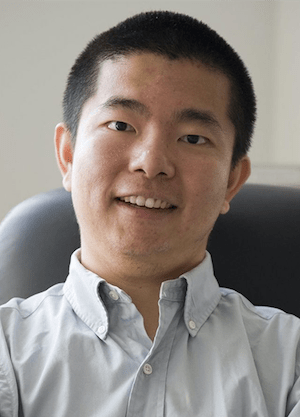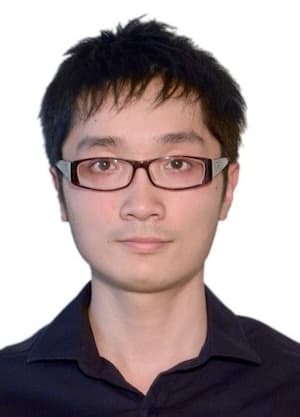Modeling battery performance and design requires different levels of detail depending on the purpose of the simulations. As battery technologies evolve, the need for accurate, flexible modeling tools becomes increasingly critical. This 60-minute webinar from the editors of Aerospace & Defense Technology will show how new applications of multiphysics and digital twin simulation can help engineers identify key metrics, such as power and energy output, as well as understand how they change based on operation mode or battery design parameters. In addition, it will explore the role provided by multiphysics simulation in this process of comparing power needs to energy output optimization. Attendees will gain insights into how these tools can accelerate innovation and improve decision-making in battery system development.
Highlights include:
- Mapping computational tools to a technology development cycle to help answer specific engineering questions at each stage, from early-feasibility to in-service operation
- Using multi-domain system modeling to integrate thermal, electrical, and mechanical systems
- Finding precise measurements of overall energy needs for equipment sizing and battery thermal management
- Considering both normal and abnormal operating conditions in simulation to assess safety requirements
- Creating accurate simulation models required for testing of battery management systems (BMS)
- Using real-time simulation platforms to verify the BMS as device under test (DUT)
- Testing on signal or voltage level with battery simulation
- The benefits of faster, more accurate CFD simulations using GPUs to reduce long computation times and resource inefficiencies
- High-fidelity CFDs with GPUs for enabling real-time analysis to accelerate decision-making and reduce costs in the development of next-gen aircraft
- Overcoming traditional simulation bottlenecks to integrate more detailed and optimized aerodynamics and aeroacoustics earlier in the process
An audience Q&A session will follow the technical presentation.
Speakers:
Graham Dudgeon, Consultant Product Manager – Electrical Technology, MathWorks

Graham Dudgeon is the Consultant Product Manager for Electrical Technology at MathWorks. Over the last two decades, Graham has supported several industries in the electrical technology area including aerospace, marine, automotive, industrial automation, medical devices, and power and utilities. Graham’s technical experience covers transmission and distribution, grid integration, renewable energy, power conversion, motors and drives, microgrids, electric aircraft, electric ship, and electric vehicle, with an emphasis on system modeling and simulation, control design, and data analytics. Prior to joining MathWorks, Graham was a Senior Research Fellow at the Rolls-Royce University Technology Centre in Electrical Power Systems at the University of Strathclyde in Scotland.
Soeren Reglitz, Product Manager – Aerospace & Defense, dSPACE

Soeren Reglitz is Product Manager, Aerospace & Defense, at dSPACE, one of the world's leading providers of test systems and tools for developing embedded control systems. He started working for the group in 2013 as a test manager for software verification before joining the product portfolio management in 2016. Soeren’s technical expertise focuses on the verification process, specifically on virtual testing methods such as software-in-the-loop and hardware-in-the-loop. He holds a double diploma in aerospace and mechanical engineering from Technical University of Brunswick and from Technical University of Compiègne.
Qiqi Wang, Ph.D., Co-Founder, Flexcompute

Dr. Qiqi Wang is the Co-Founder of Flexcompute and an accomplished MIT Professor, specializing in computational and mathematical engineering. With a robust background in algorithms, applied mathematics, and quantitative finance, Qiqi is dedicated to advancing technology that promotes peace and prosperity. His research focuses on enhancing the usability and accessibility of physics-based simulations, making complex computational methods more approachable for the public. Qiqi has a proven track record in both academic and consulting roles, demonstrating his ability to bridge theoretical knowledge with practical applications. His work in turbulent flow physics and stochastic modeling showcases his expertise in tackling real-world challenges through innovative solutions. He is passionate about fostering collaboration among researchers and practitioners to drive technological advancements. Qiqi’s commitment to education and mentorship is evident in his long-standing role at MIT, where he inspires the next generation of engineers and scientists.
Chin-Wei Chang, Industry Process Expert Specialist, Dassault Systémes

Chin-Wei Chang is an Industry Process Expert Specialist in the T&M Propulsion and Performance Group within the SIMULIA brand of Dassault Systemes. He has extensive experience in simulation of electrified powertrain system modeling and controls as well as battery cooling and thermal management analysis. He has strong experience in fluid dynamics simulation for thermal system analysis focusing on automotive applications. Chin-Wei holds a master’s degree in mechanical engineering from the University of Michigan, Ann Arbor.
Moderator:
Amanda Hosey, Editor, SAE Media Group

By registering for this event:
- You are providing us with some personal details, including an email address. SAE Media Group will process that information as described in our privacy policy https://saemediagroup.com/privacy-policy/.
- You agree that our carefully selected Sponsors may contact you. You may opt out from their communications at any time by contacting them directly.
- You agree that SAE Media Group may contact you about other events, news and promotions we believe would be of interest to you. You may opt out from our communications at any time by contacting us directly.


